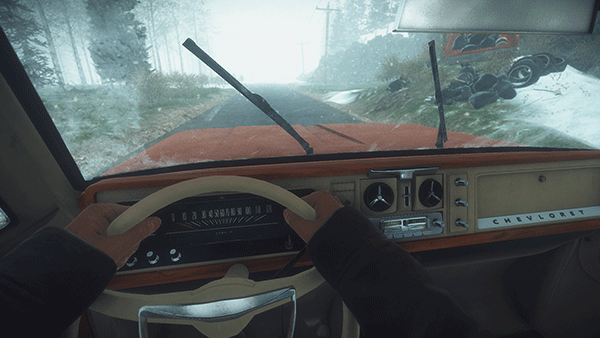Parabole: The Interview
This month’s game - Kona - is one of those games that manages to be more than the sum of its parts. It commands an atmosphere; a sense of self unique to itself. Understanding how Parabole achieved this is one of the questions we threw to Alexandre Fiset - the CEO and Co-Founder of Parabole.
Enjoy x
Give me the short history of Parabole. Talk me through the inception of the studio and the path that led to Kona?
I worked at Activision’s Beenox studio on Spider-Man games and found it odd that, despite the size of Quebec’s gaming industry, our culture was barely represented in games. I also felt many games were too long, relying on mechanics like enemy waves and system reuses that broke immersion. These thoughts led to the creation of Parabole. The name, French for both "parable" (a short story) and "parabola" (a curve), reflects our goal of crafting short, culturally-rich games with good graphics.
Kona achieves a striking sense of identity and place. Was Atamipek Lake based on a real North Canadian locale? How did you and the team approach the environment design, and achieving something so grounded?
The region is fictional but inspired by the areas around Chibougamau in Northern Quebec. We did extensive research to capture an authentic 1960s feel, including details like the General Store and a vintage yellow snowmobile. Every element we added had to fit both the setting and time period, which is how we kept the game grounded.
With narrative games and survival games often being somewhat at odds from a design perspective, Kona manages to achieve an interesting balance between the two genres. Was the game initially envisioned as one or the other? Or was the intention always to explore the middle-ground?
We aimed to blur genre lines, which is why you can drive, do detective work, shoot, and survive. Our ambition was greater than what we delivered—we wanted more horror elements and dialogues with living characters or survivors. Maybe one day, we’ll create a Kona-like game that fully realizes everything we envisioned for our first title.
What was the process like on the narrative side, and building the mystery that drives the game? What were your inspirations or driving themes you were looking to explore here?
We wanted to explore the impact of colonizing First Nations territories. Historically, their calls to protect the land were often ignored, leading to displacement for projects like mines or dams. Kona serves as a reminder to listen to those who were here long before us and to recognize that while nature is strong, its balance is fragile and easily disrupted.
Across the development of the game, were there any features left on the cutting room floor? Or anything from your original vision that couldn't make it in due to scope reasons? Did any of these then find a home in Kona 2?
Our original vision was to create four 1-2 hour episodes with two playable characters, Carl and Tereza. However, episodic games weren't popular with publishers, and Steam’s two-hour refund policy made it unviable. With a small team of about five, our ambitions were also limited by time and money, and many elements, from the "ice wall" to the environments, changed drastically during development for various reasons.
What other games have you seen recently in the indie space that are doing something bold or interesting with respect to either survival or story?
Outer Wilds is a brilliantly designed game, built around its time limit and enjoyable in short sessions while offering depth for the curious. SOMA also stands out with its excellent introduction to the underwater world. It feels like a survival story without relying on crafting mechanics to tell it.
What's next for Parabole? Are you looking to explore more in the world of Kona, or are there other ideas you'd like to bring to life?
There are various ideas for a third installment of Kona on the table, but there is a personal project of mine that I want to achieve first. After ten years making Kona, I want to explore other territories. It might not use the Parabole brand, I cannot say much more than that!
pantaloon.



